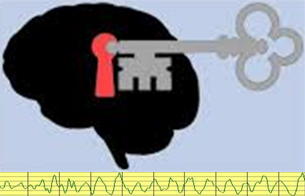Divorce: Stage 1 – Denial
By Robert Rudelic BS, NMT, MES
All of the articles in this series:

Are you struggling to face the overwhelming emotions connected to your current reality? Are you telling yourself “this isn’t happening?”


de·ni·al – the action of declaring something to be untrue.
Denial – when you do not or just cannot accept the facts that cause grief and all the related negative emotions associated with it. When faced with extreme distress, it’s natural to reject its existence to protect your mind from shock. This is a mental coping technique that serves as the first emotional line of defense to feeling that this just cannot be happening to me – it’s all a mistake. Denial is actually there to cushion the blow of a new reality and helps you navigate through the fog so you can make it through the day.
Often when living in a state of denial it’s easy to convince yourself that you’re actually living in reality. However, denial is a defense mechanism and can have some positive results. Frequently denial works–at least for a short while–and that is why it is so often resorted to.
 Some of the positive effects of denial include:
Some of the positive effects of denial include:
- In the short-term, denial can help you maintain your sanity–which would be threatened by awareness of a painful truth or reality
- In the short-term, denial can help you function day to day
- In the short-term, denial can prevent you from having to acknowledge painful thoughts and feelings
The operative word in all of the above is "in the short-term." Denial is simply a way to integrate your experience by providing a variety of filters for pain and a mechanism for self-deception to deny reality.
 The damaging effects of long-term denial:
The damaging effects of long-term denial:
Denial is a defense mechanism that discharges anxiety and emotional discomfort. By denying there’s a problem you don’t have to feel bad about the fact that there’s a problem. Unfortunately this doesn’t solve anything or make life better. It just sweeps the problems under the rug. They’re still there, still gnawing at you and still getting in your way and causing you to sabotage yourself. Even though denial can often alleviate the short-term pain, in the long run it can prevent you from making positive changes and can result in potentially destructive consequences.
The first step in overcoming self-sabotaging behaviors is to first recognize the behaviors that are a result of your denial – and that denial in itself is one of the most powerful, known self-sabotaging behaviors.
Recognize that you’re unusually stressed, anxious, short with people and bad-tempered. Your mind knows something’s wrong and this is how it tells you you’re afraid of something and you’re not directly confronting the cause, but you must acknowledge it. Admitting it is not necessarily going to ease your pain – at least not right away. But, you can’t start to heal and move forward while your head is buried in the sand.
Moving past denial is often just a matter of time. As you gradually become more emotionally ‘aware’ of what has happened, the denial will start to wear away. There is no set time for moving past denial, and you may still have moments where you think “this is really not happening”, but the sooner you take responsibility the better chance you have of not becoming stuck in this dangerous stage.

Denial is a coping mechanism that helps alleviate stress and gives you time to organize your thoughts and create a plan of action.
In the short term its effective but it needs to be moved through very quickly because in the long term it distorts your reality and keeps you from making necessary plans to deal with the situation. It also leads to poor decisions and getting run over and victimized because the other person is moving forward without your pushback. The risk is feeling bitter, angry and resentful in the end. Now how does denial sound to you?
To quickly move through the denial stage…
You need a tool that has the ability to eliminate the fear of getting real with yourself and changing your perception of the situation. This process will do the trick.
1 – Write out what’s happening to you and all the things that are going to change in your life. Be broad and thorough. Include changes in your life, your kid’s life and changes in friendships and family as well. For some this may take courage because it involves admitting it’s over … SO BE BOLD AND JUST START WRITING! Examples to think about; kids daily routines, family events, holidays, birthdays, friendship changes – some will drop off some will stay. Who is who, in-laws, contact or no contact, living environment, will it be the same and so on.
2 – Write out what happens if I do nothing, you just resist the changes. Get into a resistant, rebellious mindset and write. There could be some pluses and minuses – START WRITING. This step often gives your mind a counter argument that will enable you to get engaged.
3 – Make 2 lists. The 1st list is what you need to do to engage. Be very clear of who you need in your corner to feel safe so you’ll get what you want. The 2nd list is what you want from taking action to move this break up forward – this could be material assets, personal and lifestyle changes.
- List 1 – Your team; a lawyer, a situational coach to keep you focused on executing and being composed throughout the process, 1-2 friends you can count on no matter what, 1 family member you can lean on for emotional support who is non-judgmental.
- List 2 – What do you want from division of assets, child custody, pet custody etc. Where do you want to live etc.
4 – Get busy. It’s best to do this all in one sitting. Get it all out on paper – it can be added to later.
Do it ON PAPER!! Writing opens your mind up in ways typing doesn’t and gives you access to thoughts and memories that will make a difference in moving forward and getting the most out of this process. This is why journaling is best done in written form so says Harvard University and I agree.

Courage is taking action in spite of fear
SO JUMP IN!
Next, go to the second blog post in the series – Divorce: Stage 2 – Anger
If You Want to Learn How to –
- Own emotional composure
- Eliminate self-sabotaging beliefs
- Have an unshakable “Yes I Can Attitude”
- Bravely stand up for yourself, think ahead, and make decisions with clarity and confidence
Go to www.InvincibleDivorcee.com

My Program is an experiential training that pays off immediately by teaching you how to quickly change your mindset putting you in full control. You’ll learn how to replace the old beliefs with new beliefs and lock them in permanently, be inspired, and own emotional composure. The results are life-changing!
For more information, visit our PowerTapping page.
San Francisco, CA 94107
Contact Us: www.RobertRudelic.com/contact
E-Mail: support@RobertRudelic.com



